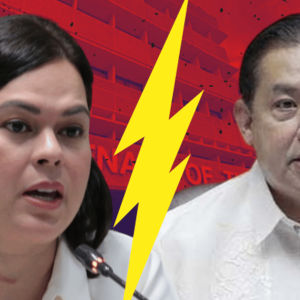
FPJ Panday Bayanihan Partylist First Nominee Brian Poe Llamanzares, author of a new book on sustainability, delivered a compelling talk highlighting the urgent need for the Philippines to prioritize sustainability.
His impassioned address wasn’t just about environmental concerns; it was a call to action for national survival.
Poe’s journey into the world of sustainability began with a simple question posed by his family when he pursued a Master’s degree at Columbia University in 2017.
Choosing sustainability over an MBA, he explained, stemmed from a deep-seated desire to address the Philippines’ extreme vulnerability to climate change. He recognized the need to gain expertise from leading institutions and apply that knowledge to his homeland.
His talk painted a stark picture of the Philippines’ reality. The nation faces the brunt of climate change, consistently ranking as the most climate-vulnerable country globally for the past three years.
Poe presented staggering statistics: 33,000 lives lost and 120 million people affected by natural disasters over the past 30 years, resulting in annual economic losses of $3.5 billion (P206,045,000,000). These losses are projected to escalate to 2% of GDP by 2030 and 5.7% by 2040.
The crisis extends beyond natural disasters. The Philippines faces critical food and water insecurity. Agricultural production has plummeted by 32% in two decades, transforming the country into the world’s largest rice importer – a situation that poses significant national security risks.
Food insecurity affects 64.1% of Filipinos, with one in three children suffering from stunting. The speaker starkly contrasted the annual typhoon losses of $3.2 billion (P188,384,000) with the $220 million (P12,951,400,000) budget for the Department of Education’s school-based feeding program.
The situation is further aggravated by water insecurity. Despite abundant rainfall, nine million Filipinos lack access to improved water sources, leading to 55 deaths daily from waterborne diseases. The annual cost of poor water sanitation and infrastructure is a staggering ₱780 billion.
However, Poe’s message wasn’t one of despair. He highlighted the Philippines’ proactive efforts, including recent legislation such as the Ligtas Pinoy Centers Act (for building strategic evacuation centers) and the Student Loan Payment Moratorium (offering relief during disasters). Increased government investment in agriculture and water infrastructure projects further demonstrates a commitment to change.
Poe’s call to action focused on three key policy proposals: A dedicated Department of Disaster Resilience to centralize disaster preparedness and response efforts, optimizing resource allocation and ensuring readiness.
Department of Water Management to streamline water resource management, eliminating overlapping authorities and improving service delivery.
The Young Farmers and Fisher Folk Act: to revitalize the agricultural sector by attracting young people through training, funding, and modern techniques.
Poe concluded by emphasizing that sustainability isn’t a future concern; it’s a present crisis demanding immediate action.
While acknowledging the challenges, he stressed the resilience of the Filipino people and the potential for positive change through collective action and effective policy. His talk served as a powerful reminder that addressing sustainability is not merely an environmental issue, but a crucial step towards securing a brighter future for the Philippines.






